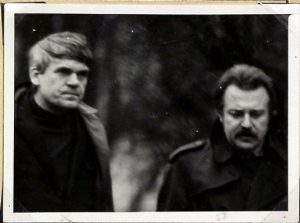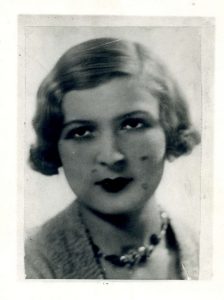The archives contain material about East European intellectuals who were persecuted and harassed by the communist authorities, as well as facts concerning collaboration with repressive Soviet organs.

The Ukrainian documents reveal interesting facts about writer and humourist Ostap Vyshnia, filmmaker Oleksandr Dovzhenko, monumentalist artist Mykhailo Boychuk, film and theatre director Les Kurbas, artist Opanas Zalyvakha, textile artist Stefaniya Shabatura, artist Mykola Hlushchenko, poet Vasyl Stus, and novelist Valerian Pidmohylny. Many of them were part of the dissident group known as the Executed Renaissance.

Documents from the State Security Service of former Czechoslovakia (ŠtB) testify about cases concerning the first president of the Czech Republic, Vaclav Havel and writer Milan Kundera.

Documents about Latvian-Georgian artist Romans Suta and Georgia’s first president Zviad Gamsakhurdia have also come to light.

Many photos have been published for the first time, and all detailed information is specified on the website. Thus, an interesting file relates the case of artist and Soviet agent Mykola Hlushchenko, who was recruited by Soviet intelligence in 1926, and worked under the call sign “Yarema”. The file contains a copy of an album with a watercolour sketch by Adolf Hitler, which the Fuhrer gifted to Hlushchenko in 1940. For the first time, we can also see a photo of the artist’s wife, also an artist and secret agent who carried the pseudonym “Artist”.
There are photos and documents about the Kundera case, where we learn how the communist secret services exerted pressure on the Czech writer Pavel Kohout by poisoning his dog.
The digital archive contains more than 28,000 digitized documents; all of them can be freely accessed and downloaded. It is planned to organize the documents in an online exhibit “Repressed Art”.
The project was researched and prepared by experts and scholars from the Czech Republic, Georgia and Ukraine with the support of the House of Europe, funded by the European Union.


